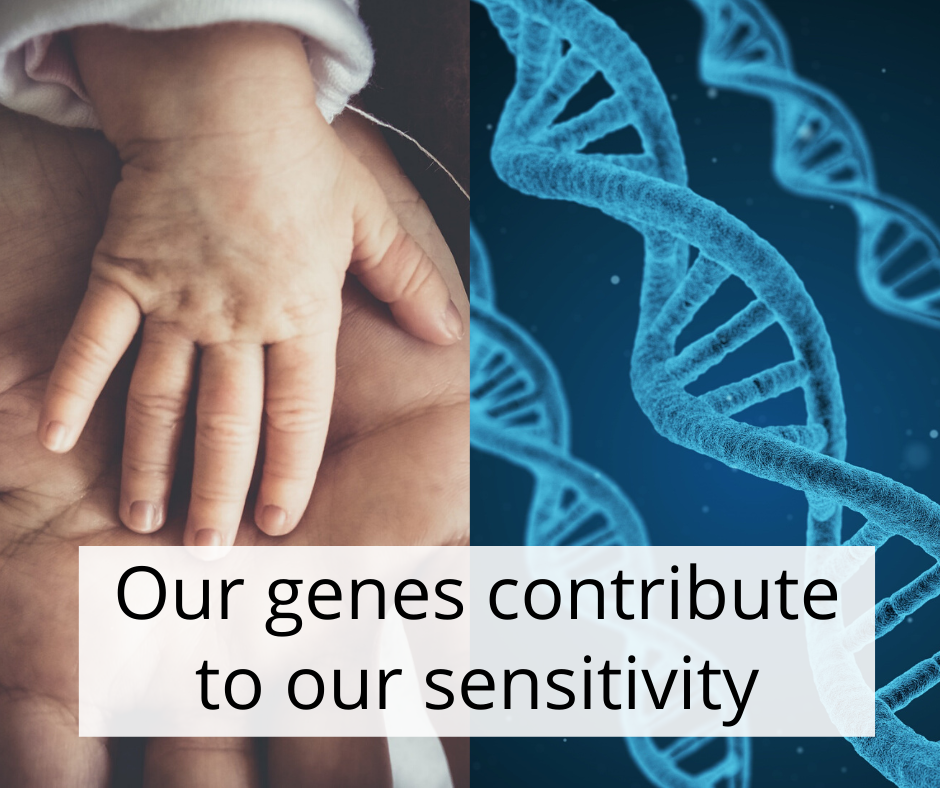 A recent study, led by researchers at the Queen Mary University of London, looked at the genetic basis behind sensitivity. They compared sensitivity in a sample of 2868 adolescent twins, with 1011 identical twins, 901 same-sex fraternal twins, and 956 opposite sex fraternal twins. Twins raised in the same family mostly experience the same environment, but only identical twins share the same genes, which gives insight into the role of genetics vs environment. In this study, the twins all completed a questionnaire to test their levels of sensitivity to their environment (including sensitivity to noise, taste, and smell) and whether they are more sensitive to negative or positive experiences. They found that 47% of the differences in sensitivity were accounted for by genetics; the other 53% of variation was due to non-shared environmental influences and includes measurement error. While this study did not explore pain sensitivity specifically, it is especially interesting as our current studies are focused on exploring the link between pain sensitivity and other senses to better understand the mechanisms behind chronic pain.
A recent study, led by researchers at the Queen Mary University of London, looked at the genetic basis behind sensitivity. They compared sensitivity in a sample of 2868 adolescent twins, with 1011 identical twins, 901 same-sex fraternal twins, and 956 opposite sex fraternal twins. Twins raised in the same family mostly experience the same environment, but only identical twins share the same genes, which gives insight into the role of genetics vs environment. In this study, the twins all completed a questionnaire to test their levels of sensitivity to their environment (including sensitivity to noise, taste, and smell) and whether they are more sensitive to negative or positive experiences. They found that 47% of the differences in sensitivity were accounted for by genetics; the other 53% of variation was due to non-shared environmental influences and includes measurement error. While this study did not explore pain sensitivity specifically, it is especially interesting as our current studies are focused on exploring the link between pain sensitivity and other senses to better understand the mechanisms behind chronic pain.

